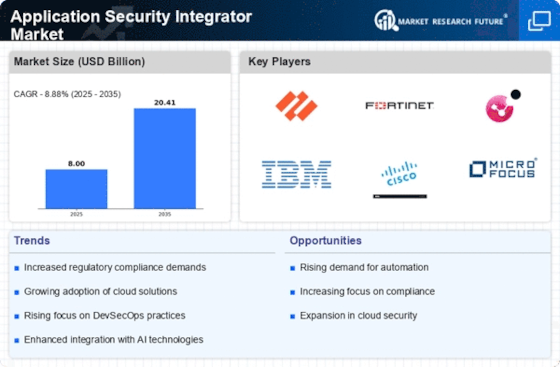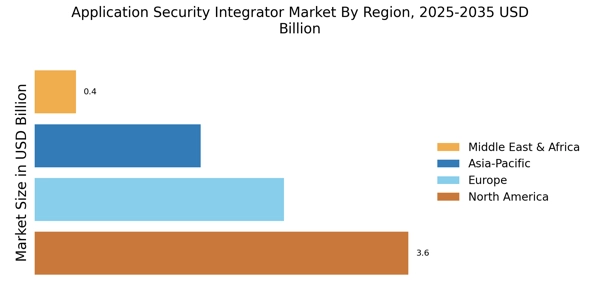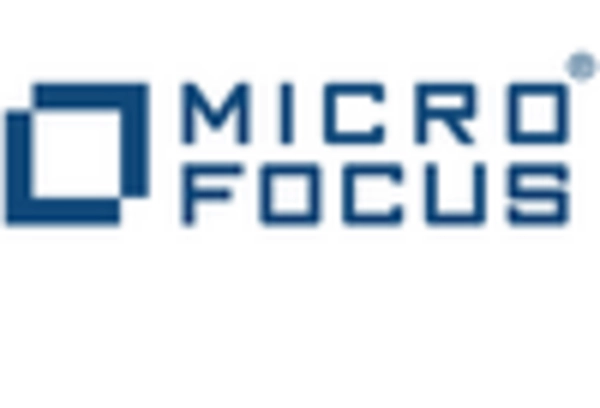Rising Cybersecurity Threats
The Application Security Integrator Market is experiencing a surge in demand due to the increasing frequency and sophistication of cyber threats. Organizations are compelled to adopt robust security measures to protect sensitive data and maintain compliance with regulations. In 2025, it is estimated that cybercrime will cost businesses over 10 trillion dollars annually, highlighting the urgent need for effective application security solutions. As a result, companies are investing heavily in application security integrators to mitigate risks and safeguard their digital assets. This trend indicates a growing recognition of the importance of integrating security into the software development lifecycle, thereby driving the market forward.
Growing Importance of DevSecOps
The Application Security Integrator Market is being shaped by the growing emphasis on DevSecOps practices, which integrate security into the development and operations processes. This approach fosters a culture of shared responsibility for security among development, operations, and security teams. As organizations strive for faster deployment cycles, the need for automated security solutions becomes increasingly critical. By 2025, it is projected that 70% of organizations will adopt DevSecOps methodologies, thereby increasing the demand for application security integrators that can facilitate this integration. This shift not only enhances security posture but also accelerates the software development lifecycle, driving market growth.
Emergence of Advanced Technologies
The Application Security Integrator Market is being propelled by the emergence of advanced technologies such as artificial intelligence and machine learning. These technologies offer innovative solutions for identifying vulnerabilities and automating security processes, thereby enhancing the overall security framework of applications. In 2025, it is expected that the market for AI-driven security solutions will surpass 15 billion dollars, indicating a strong trend towards integrating intelligent security measures into application development. As organizations seek to leverage these technologies to improve their security posture, the demand for application security integrators that can provide such advanced solutions is likely to increase, further driving market expansion.
Regulatory Compliance Requirements
The Application Security Integrator Market is significantly influenced by stringent regulatory compliance requirements across various sectors. Regulations such as GDPR, HIPAA, and PCI DSS mandate organizations to implement comprehensive security measures to protect user data. Failure to comply can result in hefty fines and reputational damage, prompting businesses to seek application security integrators that can ensure adherence to these regulations. In 2025, the market for compliance-related security solutions is projected to reach 30 billion dollars, underscoring the critical role of application security integrators in helping organizations navigate complex compliance landscapes. This necessity for compliance is likely to propel the growth of the market.
Increased Adoption of Cloud Services
The Application Security Integrator Market is witnessing a notable shift as organizations increasingly migrate to cloud-based services. This transition necessitates the integration of security measures to protect applications hosted in the cloud. As of 2025, it is anticipated that over 80% of enterprises will utilize cloud services, creating a substantial demand for application security integrators that can provide tailored security solutions for cloud environments. The need for seamless integration of security into cloud applications is paramount, as vulnerabilities in cloud infrastructure can lead to significant data breaches. Consequently, this trend is expected to drive the growth of the application security integrator market.

















